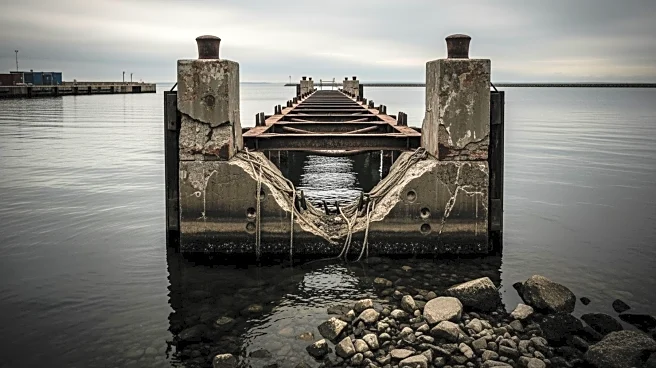What's Happening?
The Novorossiysk port in Russia is experiencing delays in crude loadings due to damage from a Ukrainian attack on November 14. The attack affected berths 1 and 1A at the Sheskharis oil harbour, which handle
large Suezmax tankers. As a result, crude loadings are two to three days behind schedule. The port, which resumed oil exports on November 16, is crucial for Russia's crude exports, handling one-fifth of the country's output. The attack led to a temporary suspension of exports, causing oil prices to fluctuate. Russia claims it can quickly address the damage and resume normal operations.
Why It's Important?
The delay in crude loadings at Novorossiysk port has significant implications for global oil markets, as it affects the supply chain of Russian crude exports. The attack highlights vulnerabilities in critical infrastructure and could lead to increased geopolitical tensions between Russia and Ukraine. The fluctuation in oil prices following the attack underscores the sensitivity of global markets to disruptions in supply. The port's ability to recover and manage the backlog will be crucial in stabilizing oil exports and maintaining market confidence. Additionally, the incident may prompt discussions on security measures and infrastructure resilience in the region.
What's Next?
Industry sources suggest that the port could catch up on the backlog by the end of November, provided weather conditions remain favorable. Russia's ability to quickly repair the damage and resume normal operations will be closely monitored by stakeholders. The incident may lead to increased security measures at key export terminals and discussions on infrastructure resilience. The geopolitical implications of the attack could influence diplomatic relations and negotiations between Russia and Ukraine, potentially affecting regional stability and trade dynamics.










